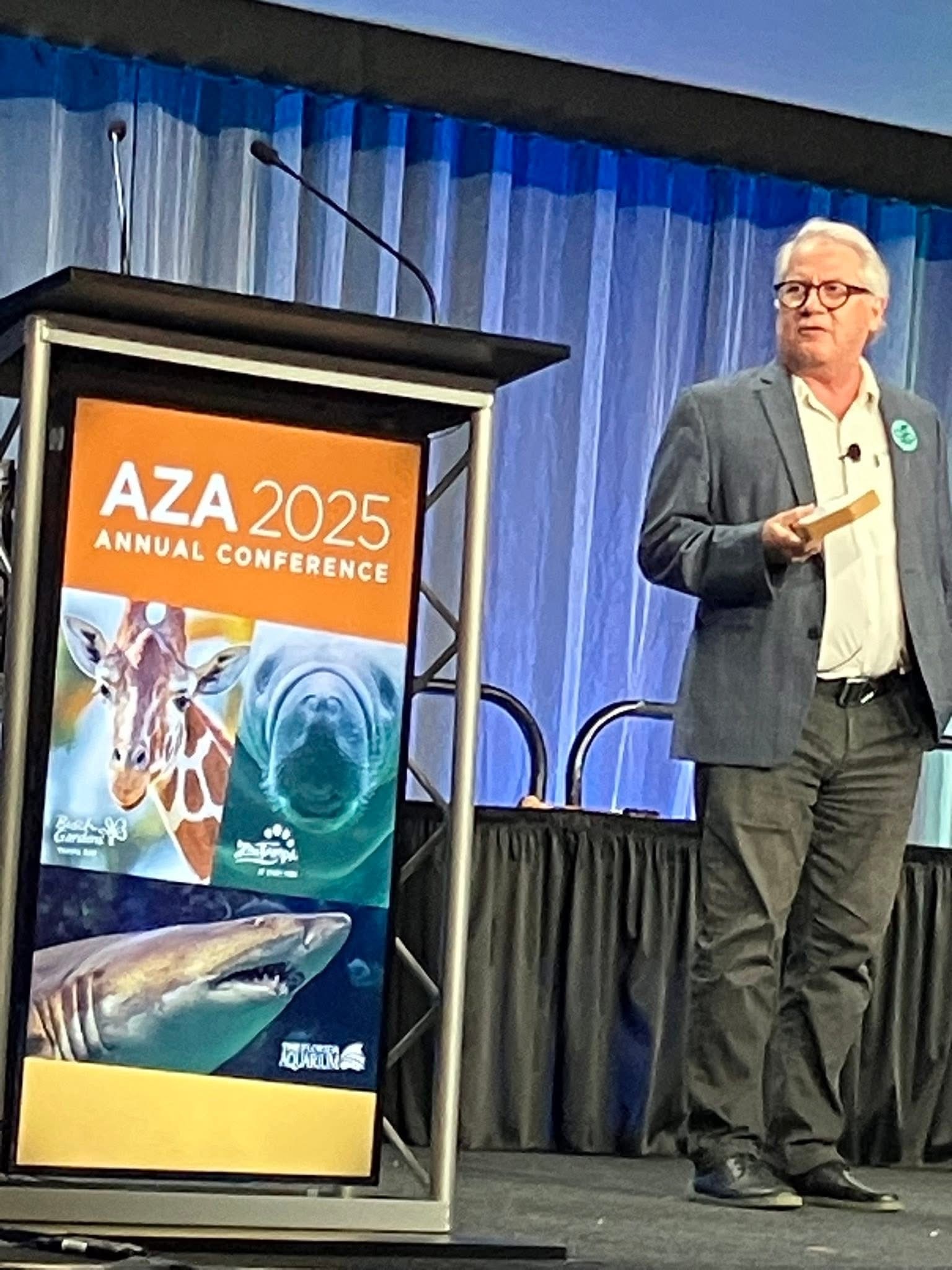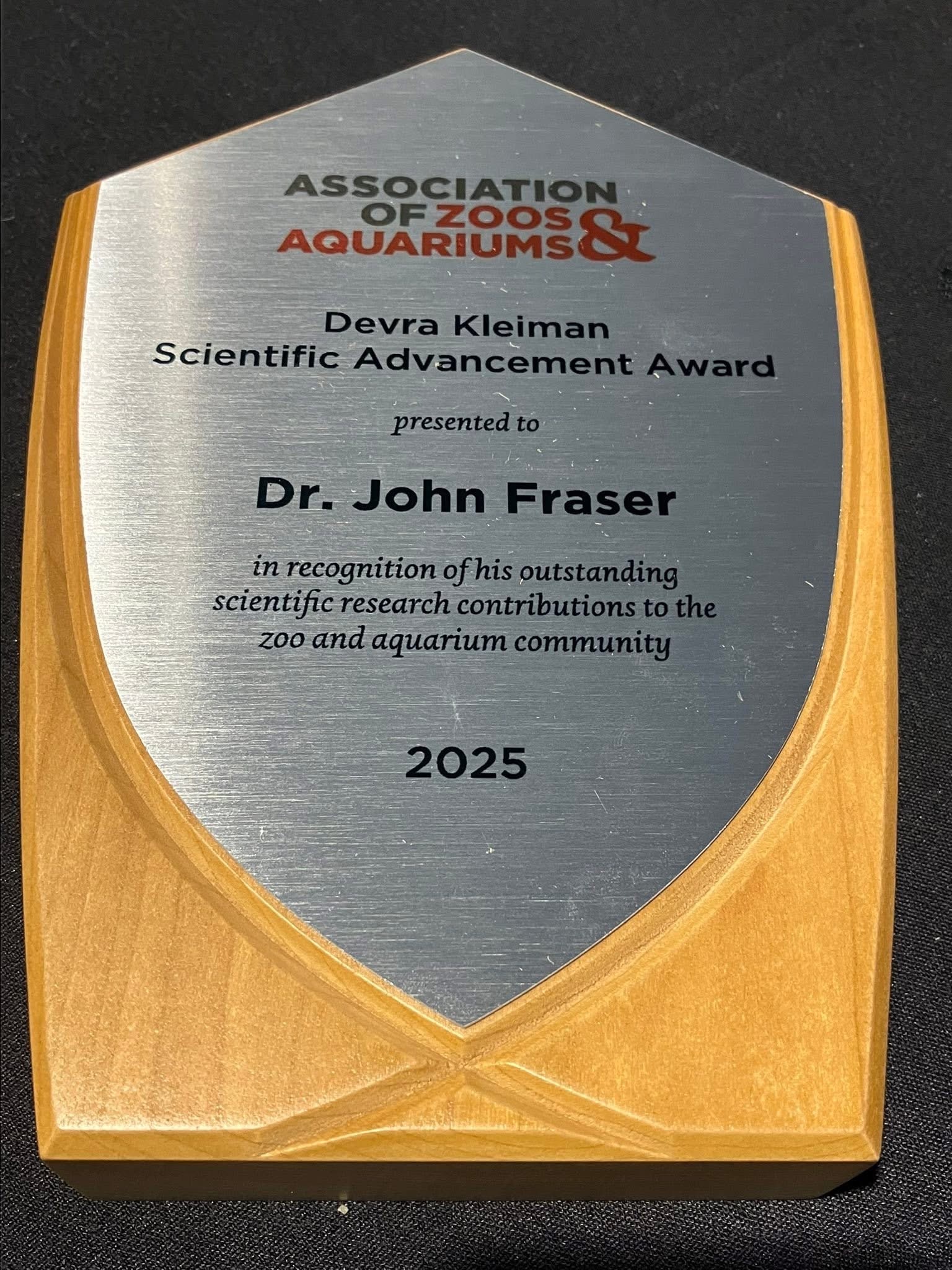The Transformational Power of Zoos and Aquariums
Through decades of ground-breaking research, Dr. John Fraser has transformed the way zoos and aquariums see themselves and their publics.
This month, Knology’s founding president and CEO Dr. John Fraser was honored with the Devra Kleiman Scientific Advancement Award. One of the highest recognitions bestowed by the Association of Zoos and Aquariums (AZA), the award celebrates outstanding scientific research contributions to the fields of animal management, education, and conservation. It is named for Dr. Devra Kleiman, a pioneering zoologist who launched one of the field’s first multi-institutional behavioral research efforts, and is only awarded when a candidate’s impact truly reflects her legacy.


Currently the Director of Mission Impact at the Alaska SeaLife Center, Dr. Fraser is the first social scientist to receive the award. Through decades of groundbreaking research and mentoring, he has transformed the way zoos and aquariums view the impact of their work, bringing much-needed attention to the human side of conservation. A leading voice in the field of conservation psychology (which he helped birth), Dr. Fraser has demonstrated the critical role human behavior plays in the success of conservation efforts. By providing data on why zoos and aquariums matter, his work underscores the social value these institutions provide.
In his acceptance speech, Dr. Fraser acknowledged that the social sciences are a collaborative effort, and gave a loud shout-out to many of the leading thinkers in the field who have worked with him over the years — including current Knology staff. In recognition of the contributions he has made through nearly four decades of work with zoos and aquariums, this blog post highlights some of Dr. Fraser’s most significant accomplishments during his time at Knology (where he continues to serve as a Research Fellow).
Why Zoos and Aquariums Matter
Dr. Fraser’s research on zoos and aquariums began by asking how to get the most conservation impact from these institutions. In addition to being important field research sites, zoos and aquariums also contribute to broader conservation efforts. Through a long-term research initiative called Why Zoos and Aquariums Matter (WZAM), Dr. Fraser played a leading role in developing guidance for the field — which is featured on the project’s website, through two books that pull together this work (The Social Value of Zoos and Zoos and Aquariums in the Public Mind), and a series of blog posts — including:
- How to Tap into STEM Learning in Any Setting
- STEM Learning Happens Everywhere, Adults Say
- Building the Public’s Trust in Zoos & Aquariums
Zoos, Aquariums, and Climate Action
Much of Dr. Fraser’s work at Knology looked specifically at the role zoos and aquariums (along with other informal sites of STEM learning) can play in actions to reduce the impacts of climate change. Through collaboration with a community of practice called the National Network for Ocean and Climate Change Interpretation (NNOCCI), Dr. Fraser and other Knology researchers worked to further knowledge of how these institutions can take advantage of participatory action research models to advance the conversation on climate change. Along with other related projects, this work yielded a number of research-based recommendations for zoos and aquariums looking to improve the quality of climate change interventions and initiatives — some of which are detailed in the following:
- Sharing Power: Aquariums & Community Groups Advancing STEM Literacies in Climate-Threatened Areas
- French Zoos Building Capacity to Engage Visitors in Climate Action
- A Proposed Climate Empowerment Theory of Change
About this Article
Please join us in celebrating Dr. Fraser on this momentous occasion! We’re thrilled to have a chance to share more about what has made his contributions to the fields of animal management, education, and conservation so path-breaking. It’s an honor to have been part of this work. Thanks for all you’ve done and continue to do, Johnny!